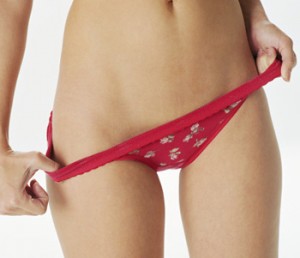Health News – Women seeking a “designer vagina” are increasingly misled and misinformed. Every girl has that time in her life when, either out of boredom, curiosity, or something more deeply rooted in bodily dissatisfaction, she Googles her options for “altering her vulval morphology.”
 A new study in BMJ Open looks at how providers are responding to women’s curiosity — or playing off their insecurities — by advertising the medical procedure online. Mimicking what someone familiar with these procedures from pop culture might do, the researchers entered the search term “designer vagina” into Google and studied the first ten U.S. and U.K. providers to pop up.
A new study in BMJ Open looks at how providers are responding to women’s curiosity — or playing off their insecurities — by advertising the medical procedure online. Mimicking what someone familiar with these procedures from pop culture might do, the researchers entered the search term “designer vagina” into Google and studied the first ten U.S. and U.K. providers to pop up.
The types of — medically unnecessary — procedures falling under the category of female genital cosmetic surgery (FGCS) included hymenoplasty, labiaplasty, “G-spot” amplication, and vaginal “rejuvenation” (the study’s authors chose to put those certain words in quotations).
Unfortunately, like Pete Well’s review of Guy Fieri’s new Times Square restaurant, the researchers rated the information provided by clinicians offering such services as being overwhelmingly “poor.”
The justifications offered to potential patients range from promises of “revirgination” to a multi-faceted “Mommy Makeover.” They appeal to a larger culture of rejuvenation, with one site explaining: “A woman might have a face lift and look really young until she goes to bed and a partner can see the evidence of ageing there.”
They’re also clear about where the insecurity that might lead women to seek out vaginoplasty is coming from: Sure, women with enlarged labia might be uncomfortable wearing tight clothing or riding horses, to the point where the surgery is medically warranted. But the sites also are candid in admitting that sexual partners, along with increased exposure to nudity in the media, often bring women’s attention to a problem that they weren’t even aware existed. Surgery, various clinicians promise, can improve “disharmony and resentment ” in relationships and allow the patient to “feel like a real woman again.”
“feel like a real woman again.”
Meanwhile, the only two sites to offer success rates boasted of 95 to 100 percent patient satisfaction. But when a procedure is done for entirely cosmetic reasons, “success” is a necessarily subjective outcome. All ten mentioned risks (which do tend to be minimal), but little long or short-term detail was provided. Some insisted that pregnancy is much riskier. None of the sites mentioned lower age limits, which the authors highlight as being especially problematic, as concerns about looking “normal” down there might be especially distressing for young women.
They also found a lot of instances of what they interpreted as these sites using subtle tricks to convince women that they had a problem requiring surgical intervention in the first place. The sites tend to call attention to “labial hypertrophy,” for example, which is not a medically defined condition. They also argue that the frequent use of references to odor, ugliness, and irritation were likely intended to cause women to feel bad about their vaginas, and thus experience their “symptoms” as worse than they otherwise might.
“The absence of evidence for clinical effectiveness was not only left out,” the authors concluded, “but in combination the sites actually made scientifically inaccurate claims that the procedures were effective along physical, psychological, social and sexual parameters.”
There’s no denying that the researchers are coming at this from a decidedly anti-vaginoplasty perspective. They emphasize non-invasive ways of minimizing genital discomfort, and argue that self-consciousness or lack of sexual confidence are best addressed by psychologists, not surgeons. “Providers,” they insist, “should emphasize that healthy vulvas come in all shapes, sizes and colors, that all vulval appearances are compatible with psychological and sexual wellness, and that the majority of women do not choose to surgically alter their healthy vulva.”
Enough women must feel that $10,000 is a small price to pay for the prospect of an improved sex life, or the possibility of “literally squeezing a ring” out of their boyfriend, for cosmetic vaginoplasty to have become a trend. But where medical practitioners are concerned, they’ve pointed out a lot of opportunity for them to do more harm than good.

